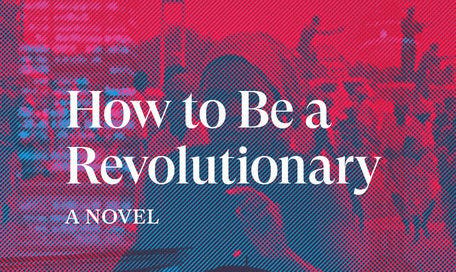C.A. Davids’s How to Be a Revolutionary is not on the surface a novel that delivers on its bold title. A South African born in 1971, Davids has assembled a peripatetic writing career from stints in advertising, public relations, and children’s book publishing as well as a moderately well-regarded 2013 debut novel called The Blacks of Cape Town. As a high school student in the late ‘80s, she was just old enough to join the death-strewn, all too slow-moving battle against apartheid that led to the release of Nelson Mandela from prison in February 1990. The vivid South African segments of her new novel are dominated by scenes from those years and the Truth and Reconciliation Commission of a decade later. Most of the action, however, takes place in Shanghai, where Davids has also resided. Her protagonist Beth, a “brown-beige” woman like Davids, has just become a South African consul there, a life change that ends her marriage because her husband believes it capitulates to a post-apartheid government that has betrayed its commitment to justice.
The novel’s opening sentence establishes a central dynamic between Beth and a much older Chinese journalist named Zhao, who first annoys her by typing late at night upstairs but becomes her best friend in China as he shows her around the most populous city in the world and she introduces him to the pleasures of coffee, Americano please. And very early surfaces a more marginal third protagonist: the African-American poet and short story writer Langston Hughes, who as a 31-year-old spent three weeks in Shanghai in 1933 but is represented in Davids’s novel by much later letters to a South African poet that she made up herself.
The brief chapters and disorienting shifts among points of view and historical moments are both thematically evocative and formally apt, not least because Beth, Davids’s representative among the three central figures, spends the entire novel trying to figure out just what she’s doing and why. Writing in 1953, Hughes begins with justifiable confidence in his ambition and renown while by no means underestimating the injustices of American racism—or so he thinks, though that estimate dips a lot farther after he testifies before Joe McCarthy’s Senate Permanent Subcommittee on Investigations in a soul-shaking showdown with Illinois senator Everett Dirksen and future Trump fixer Roy Cohn. And aging journalist Zhao, not much of a narrator per se because we see many of his actions although by no means his nightmarish memories mostly through Beth’s eyes, has his own program, which he will firm up by the end with perilous research and successfully load off on the young South African diplomat he’s befriended.
Beth’s social life in Shanghai broadens markedly with the arrival of a new chief consul, a young Zulu named Arabile who leapfrogs over more experienced candidates with a boost from his marriage to Shan, a glamorous Chinese woman from a prominent family—one of the fuerdai, as the offspring of the leaders of the Maoist revolution are known. And as How to Be a Revolutionary takes shape, the two women concoct something called the Shanghai Book Club that enables them to conspire at considerable personal risk to preserve the pages Zhao is typing so noisily in the novel’s opening sentence. These pages document grisly details of the Great Famine of 1959-1961, a catastrophe that when it is acknowledged at all in China, which does happen, is always recalled as a crucial not to say visionary precursor to the enormous economic gains toward which Mao led the nation in its wake. And worse still, they also recount atrocities Zhao witnessed personally in Tiananmen Square on June 4, 1989, a date it is forbidden even to mention in today's China.
The Shanghai the novel describes and evokes is a lively and engaging place far from the two pieces of gruesome history the journalist and patriot Zhao takes such pains to document in words and then smuggles out of the country with Beth’s considerable although never explicitly solicited help. Soon she returns to South Africa—against her will, but she adjusts. Arabile and Shan are also compelled to exit China—to California, in their case—but seem to end up fine the way fuerdai of every stripe so often do. All four took brave risks that cost them dearly but leave them with their lives more or less intact. Which in turn leaves us to wonder whether this is how to be a revolutionary. It seems quite possible that Davids herself isn’t altogether certain whether the answer is yes or no.



